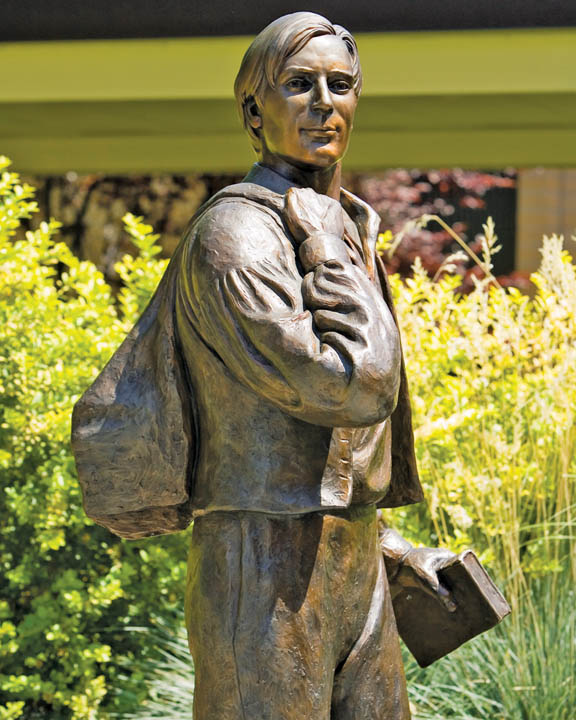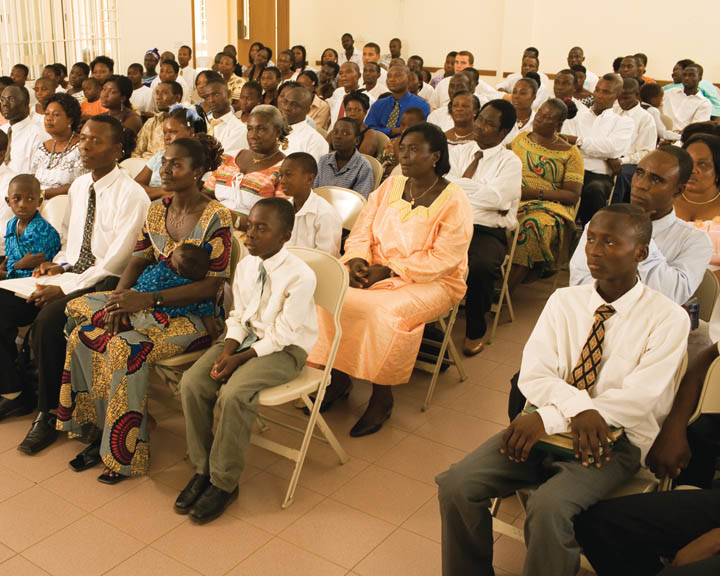As misconceptions of The Church of Jesus Christ of Latter-day Saints (sometimes mistakenly called the Mormon Church) abound, many untruths are spread about the Church. One is that it is a “cult,” a Mormon cult. The common definition of a cult is that its members are in the thrall of a powerful, charismatic leader. Another aspect of a cult is that its members appear to be lied to and brainwashed. Let’s investigate these ideas.
 First, some people assume that Mormons are in the thrall of church founder, Joseph Smith, making some people feel justified in calling it a Mormon cult. People find reports of Joseph Smith’s spiritual experiences to be bizarre, especially when most people think the heavens have been closed since the Bible was written and the original apostles died. Mormons do not worship Joseph Smith, nor are they cowed by his unusual experiences. The heavens never have been closed. People have always had spiritual experiences. An example includes the manifestations given to the men who fought the slave trade in England. William Wilberforce, and his associates who so wholeheartedly fought the slave trade, all had profound spiritual experiences that made them committed to their cause. In the United States, when Joseph Smith was receiving his visions, he encountered many who had been convinced, through spiritual guidance, that the original gospel of Jesus Christ, in its purity, needed to be restored on earth. When these people heard of the work of Joseph Smith, they converted at once, recognizing the hand of God. This does not sound like a Mormon cult.
First, some people assume that Mormons are in the thrall of church founder, Joseph Smith, making some people feel justified in calling it a Mormon cult. People find reports of Joseph Smith’s spiritual experiences to be bizarre, especially when most people think the heavens have been closed since the Bible was written and the original apostles died. Mormons do not worship Joseph Smith, nor are they cowed by his unusual experiences. The heavens never have been closed. People have always had spiritual experiences. An example includes the manifestations given to the men who fought the slave trade in England. William Wilberforce, and his associates who so wholeheartedly fought the slave trade, all had profound spiritual experiences that made them committed to their cause. In the United States, when Joseph Smith was receiving his visions, he encountered many who had been convinced, through spiritual guidance, that the original gospel of Jesus Christ, in its purity, needed to be restored on earth. When these people heard of the work of Joseph Smith, they converted at once, recognizing the hand of God. This does not sound like a Mormon cult.
Joseph Smith received a vision of God the Father and Jesus Christ, who told him that God’s kingdom on earth had to be re-established in order to prepare for the Second Coming of Jesus Christ. This last period before the Second Coming is a time of the “restoration of all things.” It took revelation to fill in all the missing pieces, lost when the apostles died. The Protestant churches were formed to correct the mistakes of orthodoxy, but they proliferated, becoming many philosophies. Each sect claimed the truth and debunked the others, but if Christ’s true Church had continued on the earth, there would be no need for all these different faiths, all claiming the truth.
There is no reason to limit God in how much scripture or how much revelation He can generate. As it says in the Book of Mormon, God has spoken continually to men since the beginning of time and has caused them to write about the information they have received. Joseph Smith did the following:
- He obeyed God and refused to deny that he had seen God and Christ, thereby bringing terrible persecution upon himself.
- He purified himself and prepared himself to be a tool in God’s hands.
- God wanted to restore the gospel in its purity in preparation for the Second Coming, with the authority that had been lost when the apostles were martyred. Joseph agreed to help with the work no matter the personal cost.
- Joseph was led to a buried record engraved on brass plates. The record was of a lost branch of Israelites. They had prophets, and Christ visited them after His resurrection. (Christ then went on to visit the Ten Lost Tribes, and they too have written the account. We will receive their records when they return.) Joseph translated the record, and it was called the Book of Mormon. It testifies that Christ lived, was crucified and resurrected, and that He is the Son of God. At the beginning, Joseph used the ancient Urim and Thummim as an aid for translation. After awhile, he didn’t need them anymore.
- Joseph Smith established God’s truths as he received them; he established a city in Nauvoo, Illinois.
- Joseph and his brothers Hyrum and Samuel were martyred for their beliefs. Joseph knew he was about to be killed, but he went like a lamb to the slaughter to seal his testimony with his blood. Would he have done so for a false book? For fanciful visions?
Latter-day Saints do not worship Joseph Smith. At the time of Joseph’s martyrdom, those who thought he was the Mormon center of worship expected the Church to fall apart. They were astonished when it flourished. Latter-day Saints center their belief on Jesus Christ and His Atonement for our sins as the Son of God. Again, this does not sound like a Mormon cult.
Are Mormons Brainwashed?
One central tenet of Mormonism is that we are all entitled to our own personal revelation from God. When a person wants to know more about Mormonism and meets with Mormon missionaries, the missionaries teach Mormonism’s basic beliefs and encourage the investigator to read the Book of Mormon. They go no further until the investigator then prays for direct revelation as to whether the book is truly the word of God. People who join the Mormon Church are those who receive direct revelation from God that it is true and who are willing to make the lifestyle changes necessary to live the commandments of God (there are many who believe but reject the lifestyle).
 The same pattern holds for everything that is taught in the Church. When the Mormon Prophet says something to the members, they are to go home, pray about the information, and gain personal revelation that it is true, and learn how they should respond. This is hardly brainwashing. Free agency (or free will) is a central doctrine of God and His Church. There is no coercion anywhere over anything.
The same pattern holds for everything that is taught in the Church. When the Mormon Prophet says something to the members, they are to go home, pray about the information, and gain personal revelation that it is true, and learn how they should respond. This is hardly brainwashing. Free agency (or free will) is a central doctrine of God and His Church. There is no coercion anywhere over anything.
That said, people are people, and every group has its norms. Members of any group can feel pressure to conform to the people around him or her. Mormons dress modestly, but according to the styles of the day and their culture. Young girls might feel pressure to dress modestly A woman with no homemaking skills might feel that she is somehow failing, but that’s not because of the tenets of the Church; that is due to the norms of a community. Mormon women in Washington, D.C., feel pressure to be educated and career-oriented because of the norms of the culture there. The Church expects worthy young men to serve missions, but it is not a commandment. A young man might feel pressured as his friends depart to serve if he has the inclination to stay home.
A good example of the lack of coercion in the Mormon Church is in the payment of offerings. Tithes are paid by putting a check into an envelope and handing it to the bishop of the congregation or to one of his counselors. There is no collection plate, and there are no objects in the chapel with the names of the people who paid for them. No one is privy to the payment of offerings — no one else knows how much tithing you have paid. In a coercive environment, those things would be public, and the charismatic leader would demand money from his followers. No such thing happens in the Mormon Church.
The Church of Jesus Christ of Latter-day Saints is not a Mormon cult, but is the re-established ancient Church of Christ, with revelation directly from Him to lead it.
